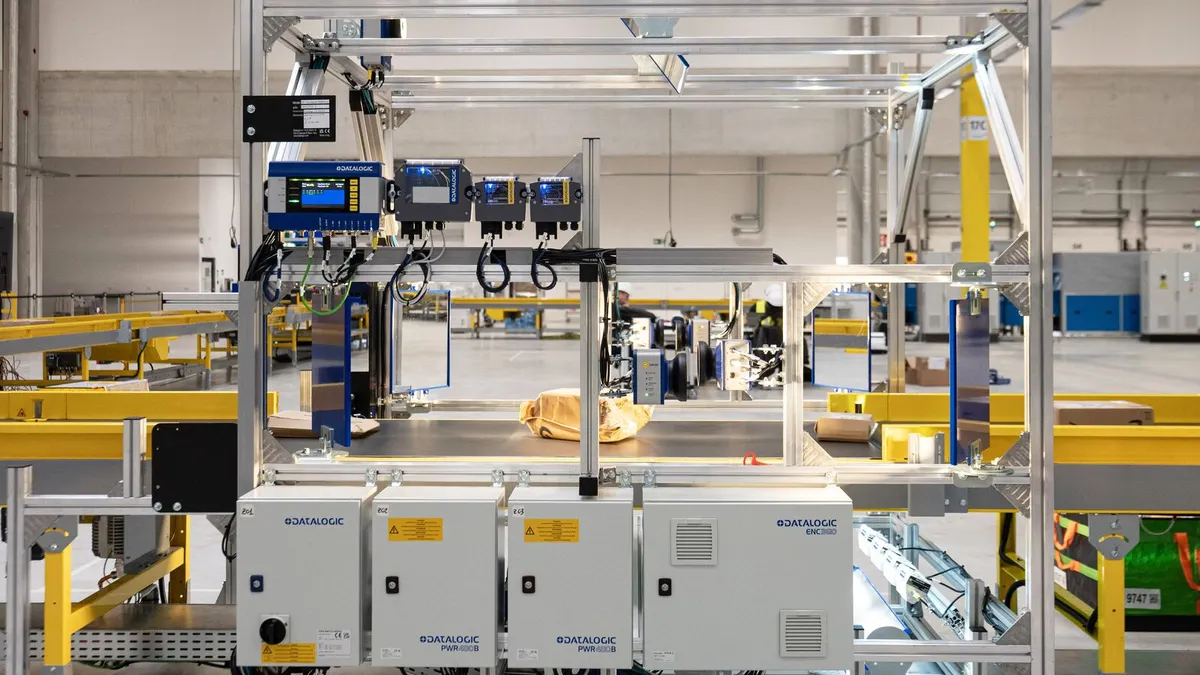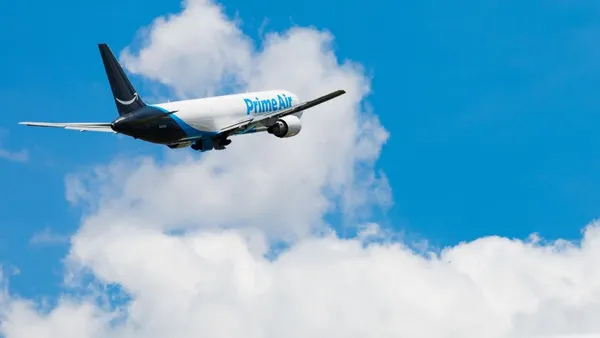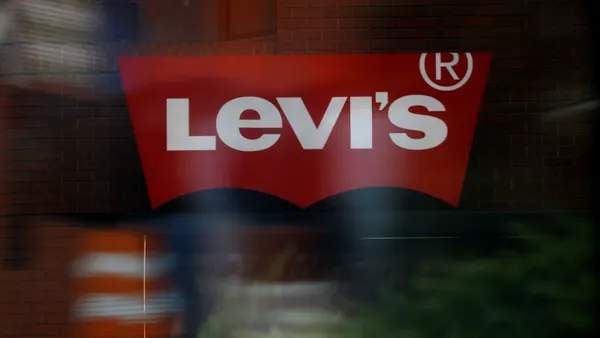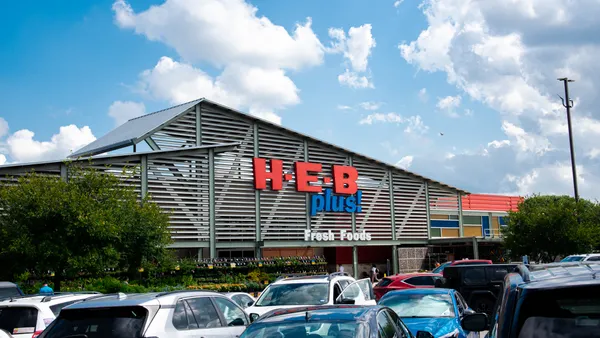Dive Brief:
- Amazon unveiled several new robots it's planning to deploy throughout its logistics network in announcements on May 7.
- The functions and benefits vary by robot, but they largely focus on eliminating or reducing manual employee tasks. Amazon's automated "Tipper" robot, for example, automatically unloads packages from carts brought by employees to conveyor belts.
- “We want to create more high-skilled work that is ergonomically sound for everyone at our facilities,” said Nicola Fyfe, VP of Amazon Logistics in Europe, in a news release. “Technology is helping us achieve this vision by creating better, safer work environments inside our delivery stations.”
Amazon's new robots
| Robot | Function | Benefit | Deployment |
|---|---|---|---|
| Tipper | Transfers packages from carts to conveyor belts | Eliminates need for manual unloading | Starting in Europe, will eventually deploy globally |
| Echelon | Manages package flow on conveyor belts | Eliminates need for manual handling | Starting in Europe, will eventually deploy globally |
| Six-sided scanner | Automatically captures package information from every angle | Eliminates need for manual scanning | Starting in Europe, will eventually deploy globally |
| Agility and Matrix | Determines optimal package sorting paths | Minimizes need for manual pushing, reaching and handling | Starting in Europe, will eventually deploy globally |
| ZancaSort | Brings packages and bags to employees at an ergonomic height | Removes need for employees to walk through numerous aisles or reach to stack parcels | Starting in Europe, will eventually deploy globally |
| Vision Assisted Sort Station | Visually highlights packages and their correct sorting locations | Makes it easier for employees to match packages to correct delivery route totes | Planned deployment in U.S. and Europe delivery stations starting in 2027 |
| Vulcan | Picks and stows items with advanced sensing technology | Handles items stowed in hard-to-reach places that are less ergonomic for employees | Planned deployment in the U.S. and Europe over the next few years |
Source: Amazon
Dive Insight:
Amazon's newest robots aren't taking over its fulfillment centers and last-mile delivery stations just yet, as large-scale deployment will take years. Still, the company said the technologies at its Dortmund, Germany, facility offer a glimpse into what the company expects its network will look like in the future, with machines taking on much of the heavy lifting.
Working conditions for employees within Amazon's warehouses have faced scrutiny through the years. A Senate report in 2024 suggested the company's warehouses created a "uniquely dangerous" environment for its workers, a claim Amazon refuted.
"Since we've been pretty substantially integrating robotics into our fulfillment network over the last many years, we have seen cost-savings and we've seen productivity improvements and we've seen safety improvements," CEO Andy Jassy said on a February earnings call. "And so, we have already gotten a significant amount of value out of our robotics innovations."
The e-commerce giant currently has more than 750,000 robots deployed in its network, all of which play a role in completing over 75% of customer orders, Amazon said in its announcement covering the "Vulcan" robot.
Vulcan has a keen sense of touch, allowing it to carefully and easily manipulate objects within inventory pod compartments, according to Amazon. The robot's capabilities allow it to pick and stow items in the top rows of these pods, removing the need for employees to use step ladders to reach those areas.
"Vulcan does this using an ‘end of arm tooling’ that resembles a ruler stuck onto a hair straightener, plus force feedback sensors that tell it how hard it’s pushing or how firmly it’s holding something, so it can stay below the point at which it risks doing damage," Amazon said.















